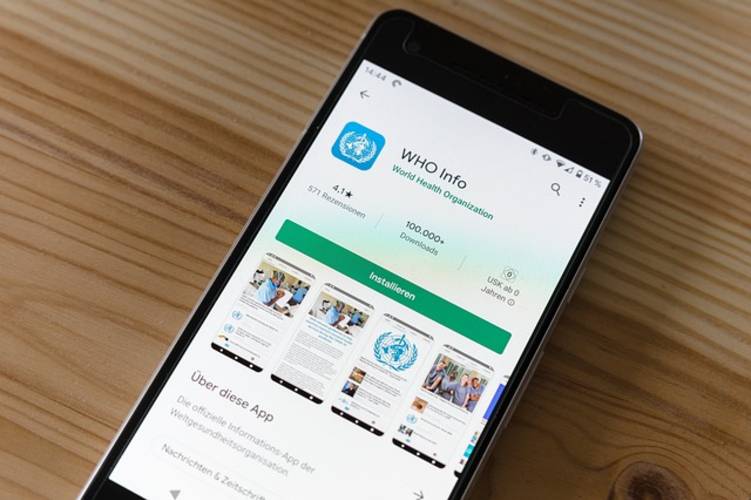


TikTok's journey from a small-scale app to a global phenomenon is nothing short of remarkable. As someone who has closely followed the social media landscape, I've witnessed firsthand the meteoric rise of this platform. It all began in 2016 when ByteDance, a Chinese tech company, launched Douyin, the precursor to TikTok, in China. The app quickly gained traction, and in 2017, ByteDance expanded internationally with TikTok.
What set TikTok apart from its competitors was its unique algorithm and user-friendly interface. The app's ability to serve personalized content through its "For You" page captivated users worldwide. I remember being amazed at how quickly TikTok could understand my preferences and deliver content that kept me scrolling for hours.
By 2018, TikTok had merged with Musical.ly, another popular short-form video app, further solidifying its position in the global market. This merger proved to be a game-changer, as it combined the best features of both platforms and expanded TikTok's user base exponentially. From that point on, there was no looking back for the app that would soon become a cultural phenomenon.
The road to success hasn't been smooth for TikTok. As we've seen in recent years, the app has faced numerous challenges, including bans in various countries and ongoing legal battles. I've been following these developments closely, and it's been a rollercoaster ride for both the company and its users.
One of the most significant hurdles TikTok has faced is the series of bans and restrictions imposed by different governments. In 2020, India, one of TikTok's largest markets, banned the app along with several other Chinese applications, citing national security concerns. This move sent shockwaves through the TikTok community and raised questions about the app's future in other countries.
The United States has also been a battleground for TikTok. Under the Trump administration, there were attempts to ban the app or force its sale to a U.S. company. While these efforts were ultimately unsuccessful, they highlighted the ongoing concerns about data privacy and security associated with the platform. As we move forward, it's clear that TikTok will need to continue addressing these issues to maintain its global presence.
The legal challenges faced by TikTok have brought the platform to the attention of the highest courts in various countries, including the United States Supreme Court. As someone who closely follows both tech and legal developments, I find this intersection particularly fascinating.
In the U.S., the Supreme Court has played a crucial role in shaping TikTok's future. In 2020, when the Trump administration attempted to ban the app, TikTok sought relief from the courts. While the case didn't reach the Supreme Court at that time, lower court rulings effectively blocked the ban, allowing TikTok to continue operating in the country.
Looking ahead, it's likely that the Supreme Court may be called upon to address fundamental questions about data privacy, national security, and the balance between free speech and government regulation in the digital age. These decisions could have far-reaching implications not just for TikTok, but for the entire social media landscape.
TikTok has revolutionized the way we create and consume content, and I've been amazed by its impact on digital culture. The platform's emphasis on short-form, easily digestible videos has transformed how we engage with media online.
One of the most striking aspects of TikTok's influence is its democratization of content creation. With just a smartphone and the TikTok app, anyone can become a content creator. This has led to an explosion of creativity, with users from all walks of life sharing their talents, ideas, and experiences with a global audience.
The platform's impact on content consumption is equally significant. TikTok's algorithm-driven "For You" page has redefined how we discover new content, moving away from the follower-based models of other social media platforms. This has created opportunities for rapid virality and has changed our expectations for content discovery across all platforms.
TikTok's success isn't just about its content; it's also driven by innovative features that keep users engaged and create new revenue streams. As someone who's spent countless hours on the platform, I've seen firsthand how these features enhance the user experience.
These features, combined with TikTok's intuitive interface and powerful algorithm, have created a uniquely engaging and addictive platform that keeps users coming back for more.
While TikTok dominates the short-form video space, it's important to keep an eye on emerging alternatives. As someone who loves exploring new platforms, I've been particularly intrigued by Rednote and Xiaohongshu.
Rednote is a music-focused app that allows users to create and share short music videos. What sets it apart is its emphasis on music creation, offering users tools to compose their own tracks. While it may not have TikTok's broad appeal, it's carving out a niche for music enthusiasts and aspiring artists.
Xiaohongshu (Little Red Book) is a Chinese social media and e-commerce platform that's gaining traction internationally. While not a direct TikTok competitor, it offers a unique blend of social sharing and shopping that could appeal to users looking for a more commerce-oriented experience. Its focus on lifestyle content and product recommendations offers a different flavor of short-form content.
While these platforms may not pose an immediate threat to TikTok's dominance, they demonstrate the ongoing innovation in the social media space. As we look to the future, it's likely we'll see more niche platforms emerge, catering to specific interests and user needs.
Virtual Private Networks (VPNs) have become an essential tool for TikTok users in countries where the app is banned or restricted. As someone who values internet freedom, I've followed this trend with great interest.
When TikTok faces bans in certain regions, many users turn to VPNs to bypass these restrictions. VPNs work by routing internet traffic through servers in different countries, effectively masking the user's true location. This allows users to access TikTok as if they were in a country where the app is still available.
However, it's important to note that using VPNs to access banned apps can be a legal grey area in some jurisdictions. Users should be aware of the potential risks and always prioritize their online safety and legal compliance.
The rise of TikTok has ushered in a new era of influencer marketing, and no one exemplifies this better than MrBeast. As a content creator myself, I've been in awe of how MrBeast has leveraged TikTok to expand his already massive audience.
MrBeast, known for his elaborate stunts and generous giveaways, has found a perfect home on TikTok. His short, attention-grabbing videos are ideally suited to the platform's format. What's particularly interesting is how he's used TikTok to drive traffic to his longer YouTube content, creating a symbiotic relationship between the two platforms.
The "MrBeast Effect" extends beyond just one creator. TikTok has enabled a new breed of influencers who specialize in short-form, highly engaging content. These creators are changing the game for brands, offering unprecedented reach and engagement rates.
As we look to the future of TikTok, it's clear that the platform will need to continue optimizing its experience across different devices. From my observations, TikTok has placed a particular emphasis on iPhone users, recognizing the importance of the iOS ecosystem.
The TikTok app for iPhone consistently receives updates and new features before its Android counterpart. This focus on iOS users makes sense given the high engagement rates and spending power often associated with iPhone owners.
However, TikTok can't afford to neglect other platforms. With the rise of foldable devices and the continued dominance of Android in many markets, TikTok will need to ensure a seamless experience across all devices to maintain its global appeal.
As we look ahead, I'm excited about the potential new features and content trends that could shape TikTok's future. Based on current trajectories and emerging technologies, here are some of my predictions:
These predictions are based on current trends and technological advancements, but in the fast-paced world of social media, we should always be prepared for unexpected innovations.
TikTok's global reach has made it a powerful tool for cultural exchange, but it has also placed the app at the center of international relations. As someone who values cross-cultural understanding, I find this aspect of TikTok's impact particularly fascinating.
On the positive side, TikTok has enabled users from different countries to share their cultures, traditions, and daily lives with a global audience. This has fostered a sense of global community and has helped break down cultural barriers. I've personally learned so much about different cultures through TikTok, from traditional dances to local cuisines.
However, TikTok's Chinese ownership has also made it a focal point in geopolitical tensions. Concerns about data privacy and potential censorship have led to scrutiny from governments around the world. This has resulted in bans in some countries and ongoing negotiations in others.
As we move forward, TikTok's role in international relations will likely continue to evolve. The app's ability to navigate these complex geopolitical waters will be crucial to its long-term global success.
Leading a company as dynamic and controversial as TikTok is no easy task, and CEO Shou Zi Chew has found himself at the helm during particularly turbulent times. As someone who follows tech leadership closely, I've been impressed by Chew's handling of the numerous challenges facing TikTok.
Shou Zi Chew took over as CEO in 2021, inheriting a company facing intense scrutiny from regulators and lawmakers around the world. His leadership style has been characterized by transparency and a willingness to engage directly with critics. This was particularly evident in his testimony before the U.S. Congress in 2023, where he faced tough questions about TikTok's data practices and relationship with the Chinese government.
Under Chew's leadership, TikTok has made significant investments in data security and content moderation. He has also been instrumental in pushing the "Project Texas" initiative, which aims to store U.S. user data exclusively on U.S. servers.
As TikTok continues to navigate complex regulatory landscapes and public perception challenges, Chew's leadership will be crucial in shaping the company's future. His ability to balance the interests of users, creators, advertisers, and regulators will likely determine TikTok's long-term success.
While TikTok currently dominates the short-form video space, it's important to consider the broader future of this content format. As a content creator and social media enthusiast, I'm excited about the potential evolution of short-form video.
While TikTok has set the standard for short-form video content, the future of this format extends far beyond any single platform. As creators and users, we should be prepared for ongoing innovations in this space.
As we look to the future of TikTok and social media success, it's clear that we're in for an exciting ride. TikTok has revolutionized the way we create, consume, and share content, but it's also facing significant challenges. From navigating complex regulatory environments to fending off competition from established players and emerging alternatives, TikTok's path forward is far from straightforward.
However, if there's one thing TikTok has demonstrated, it's resilience and adaptability. The platform has consistently innovated, introducing new features and refining its algorithm to keep users engaged. As long as it continues to prioritize user experience and creator empowerment, TikTok is well-positioned to maintain its leadership in the social media landscape.
For content creators, marketers, and social media enthusiasts, the key to success will be staying adaptable and open to new trends and platforms. While TikTok may be the dominant force today, the social media landscape is always evolving. By staying informed about emerging platforms like Rednote and Xiaohongshu, and being ready to experiment with new content formats, we can ensure we're always at the forefront of social media success.
Are you ready to take your social media presence to the next level? Whether you're a content creator looking to expand your reach or a business aiming to connect with a younger audience, now is the time to dive into TikTok. Start by downloading the app, exploring its features, and creating your first video today. Remember, the key to success on TikTok is authenticity and creativity, so don't be afraid to show your unique personality or brand voice. And if you're in a region where TikTok is restricted, consider exploring alternative platforms or using a VPN responsibly. The future of social media is in short-form video content – are you ready to be part of it?

Introduction to Deepseek Coder: A Game-Changer in...
November 03, 2024

Introduction to the World Health Organization (WHO...
November 03, 2024

The price of eggs in the United States has reached...
February 27, 2025

Elon Musk, the billionaire entrepreneur and CEO of...
February 27, 2025
Click to read more ...
Best Dream Car requests your location to offer personalized results and improve your experience.
Would you like to allow location access?